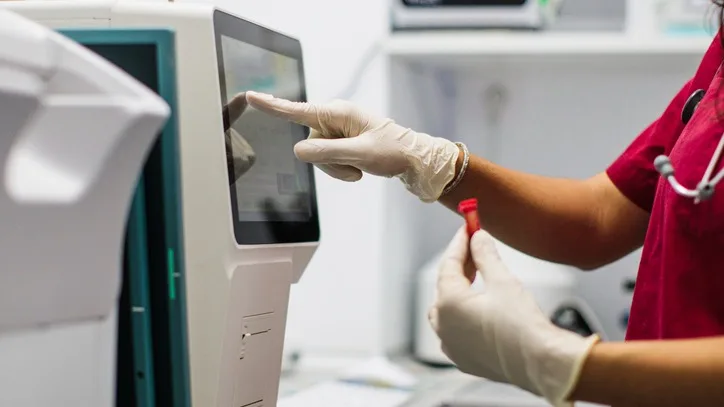
Overview
Sunbird Bio's platform aims to address a $20 billion global neurology diagnostics market to test for Alzheimer’s, Parkinson’s, ALS and more.
First-in-class blood tests for key proteins that aggregate in the brain have diagnostic potential for major neurodegenerative diseases.
Diagnosing neurodegenerative diseases has long relied on guesswork, invasive tests, and late-stage symptoms – until now. Sunbird Bio is developing what could be the first blood test to come to market capable of detecting the key protein aggregates linked to major brain disorders, offering a faster, simpler, and more accurate path to early diagnosis and better patient care.
Until recently, specific protein aggregates were believed to be associated with a specific disease. However, it is now understood that as many as 50 percent of patients suffering from neurological disease have co-pathologies and multiple protein aggregates.
Sunbird may be the first to detect co-pathologies, enabling therapeutic trials to identify the right patients to treat with the right therapies. This approach could transform the $20 billion global neurology diagnostics market, by providing a window into the brain and improving the accuracy, accessibility, and affordability of disease detection.
For millions of people around the world affected by neurodegenerative diseases, obtaining an accurate diagnosis has proven difficult. Conditions such as Alzheimer’s, Parkinson’s disease, ALS, and frontotemporal dementia (FTD) are typically diagnosed only after clinical symptoms manifest rather than biomarkers that indicate molecular or cellular changes associated with early-stage disease.
This means patients receive later-stage diagnoses, and the development of early-stage interventions is hindered or missed.
Sunbird Bio is set to flip this scenario by detecting key protein aggregates as well as potential co-pathologies through a simple blood test.
Transforming Neurological Diagnoses with Biomarkers
The conventional approach to diagnosing neurodegenerative diseases is based on cognitive testing, PET scans, or invasive spinal taps, each of which has significant limitations. PET scans are costly (approximately $5,000 each), lumbar punctures are invasive, and some critical disease markers cannot be detected with current techniques.
“Traditionally, it has been believed that there are different protein aggregates that relate to Alzheimer's disease versus Parkinson's disease versus ALS and the like, and there's been no good way to detect those aggregated proteins,” said John McDonough, executive chairman and CEO of Sunbird Bio. “The field has been very dependent on cognitive screening to diagnose disease, which is somewhat problematic.”
For some of these protein aggregates, also called plaques, PET scans are available. But for some, such as alpha-synuclein and TDP-43, known protein biomarkers for, respectively, Parkinson’s and ALS, McDonough noted that there had been no way to readily detect them with any imaging or blood tests.
“Our team made a major discovery – that the proteins associated with these plaques actually bind to extracellular vesicles that pass through the blood-brain barrier,” he continued. “We then designed a detection method that can run on standard diagnostic instrumentation and detects the presence of the vesicle and the disease protein being carried by it.”
Sunbird’s technology captures these vesicles and analyzes their contents, potentially delivering a noninvasive, highly accurate blood test that can identify multiple major neurodegenerative disease proteins at once – an industry first. Specifically, its test screens for alpha synuclein, TDP-43, as well as beta-amyloid and tau for Alzheimer’s, among others.
Solving the Neurological Clinical Trials Recruitment Crisis
Neurodegenerative diseases have long been a graveyard for drug development, with over 99 percent of clinical trials failing. Until recently, selection of patients for such studies relied on clinical symptoms instead of molecular biomarkers, resulting in participant populations that frequently lacked the targeted disease pathology.
Sunbird Bio’s diagnostic has the potential to bring a new level of precision to neurodegenerative trial enrollment, evidence, and impact.
“This entire field is really where cancer was 20 years ago,” said McDonough. “We now have drugs for the first time that break up one of these plaques – beta-amyloid – and they've shown that they can slow the rate of cognitive decline. But what pharma companies need is a way to detect the presence of these aggregates and the co-pathologies to identify the right patient population where their therapy can be most safe and effective.”
He added that understanding the complexity of overlapping pathologies is critical.
“What's been discovered only in the last 12 months is that there's an extraordinarily high rate of co-pathologies. We now know that 50 percent of the patients with Alzheimer’s disease also have aggregated alpha-synuclein, and some Parkinson’s patients have beta-amyloid,” he said. “So, what pharmaceutical companies need is a test – and we believe we're going to be the first to enable this.”
Big Pharma Investing to Transform Patient Care and Public Health
“Everything we're working on is a blood test,” McDonough emphasized. “It uses small amounts of blood, runs on standard equipment, and can scale around the world at a reasonable cost. Ultimately, there are going to be millions – probably tens of millions – of tests that need to be run annually.”
The biopharmaceutical industry has already taken notice. Eli Lilly, a leader in developing drugs for Alzheimer’s and Parkinson’s, invested in Sunbird Bio in 2023, recognizing the test’s potential to accelerate and de-risk clinical trials.
The company has plans to launch its first commercial test, which will screen for alpha-synuclein, a biomarker associated with Parkinson’s and mixed-pathology Alzheimer’s, in the summer of 2025.
Following this launch, the company plans to expand globally through partnerships with leading diagnostic firms and pharmaceutical companies.







